
23 Jun, 2016
The Beauty of an Alternative Perspective: Einstein on Israel and Zionism
Editor’s Note: The article below was one of the Soul-Searching columns I wrote for the Bangkok Post, published Aug 21, 2011. These columns were gagged by “the newspaper you can trust” in July 2012. I am reproducing it below to help promote an alternative perspective in the travel & tourism industry, which is one of the primary casualties of the world’s longest-running geopolitical conflict. 2017 will mark the 100th anniversary of the infamous Balfour Declaration, which set in motion the wheels of the occupation. By next year, the current Jewish extremist-backed Israeli government hopes to complete the process of wiping Palestine off the map. That will only perpetuate what the late Singaporean leader and statesman Lee Kuan Yew called the “cancer” of terrorism. If leaders of our so-called “industry of peace” can muster the courage to challenge the conventional wisdoms of the root causes of terrorism, and condemn the Israeli occupation of Palestine in the same way they condemn acts of terrorism, it may help inject a check-and-balance mechanism into the system. As it can be certifiably proven that Albert Einstein stands with them, how can they go wrong?
Travel Impact Newswire is proud to be at the forefront of journalism that fears no-one, not even the Israelis.
++++++++++++++
With global diplomatic activity over the declaration of an independent Palestinan state heading for a potential end-game at the UN General Assembly in September 2011, it is becoming ever more important to sift through the facts and fictions surrounding this long-running conflict.
One book that adds considerable weight to the discourse is “Einstein on Israel and Zionism.” A collection of essays, interviews, letters and testimonies by Albert Einstein, one of the world’s most famous Jews, covering the 1919-55, it shows clearly how Einstein moved from being a supporter of the Zionist cause to questioning its outcome.
The book’s credibility is enhanced by one remarkable revelation. Although it is widely known that Einstein was asked to become the second president of Israel in 1952, very few know that Einstein turned it down, calling it “a difficult situation that would create a conflict with my conscience.”
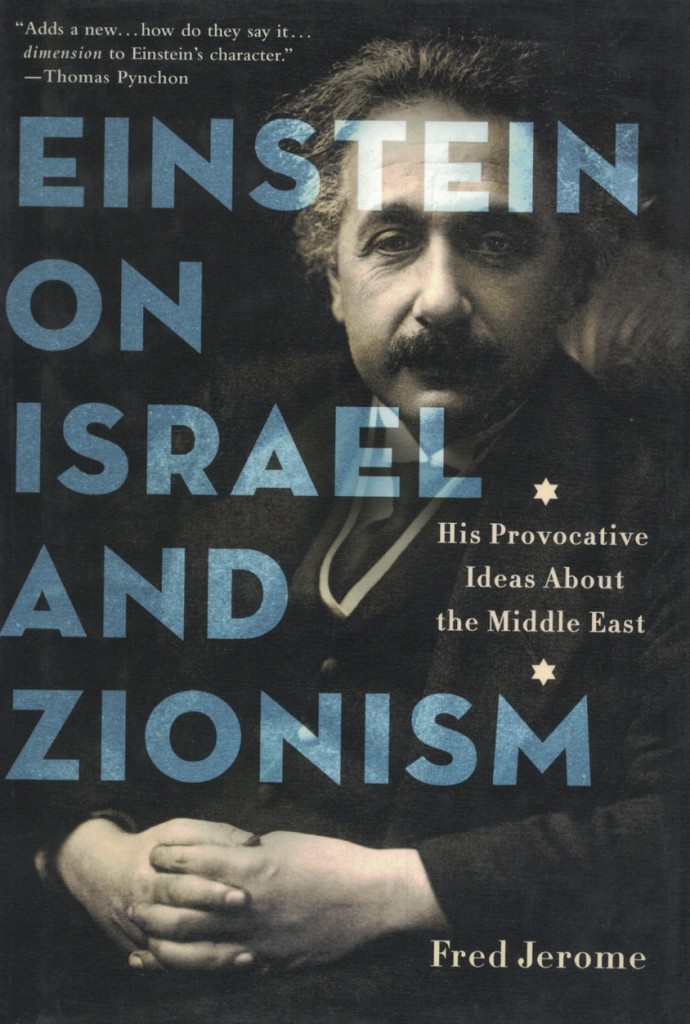
First published in 2009, this book essentially explains why he felt thus.
The exhaustive documentation, some of which has never before been published or translated from the original German, was compiled by journalist Fred Jerome, senior consultant to the Gene Media Forum, Newhouse School of Communications, Syracuse University. Jerome covered the exploding U.S. Civil Rights movement in the early 1960s and has taught journalism at Columbia and New York University.
The translations are by Dr Michael Schiffman, a lecturer at Heidelberg University’s Department of English and American Studies. In his introduction, Dr Schiffman writes, “Einstein, a very conscious Jew who felt the connection to his people by a thousand threads, was very much in favour of the dream of a Jewish homeland, but his dream differed greatly from Theodore Herzl’s dream of a state exclusively for the Jews.
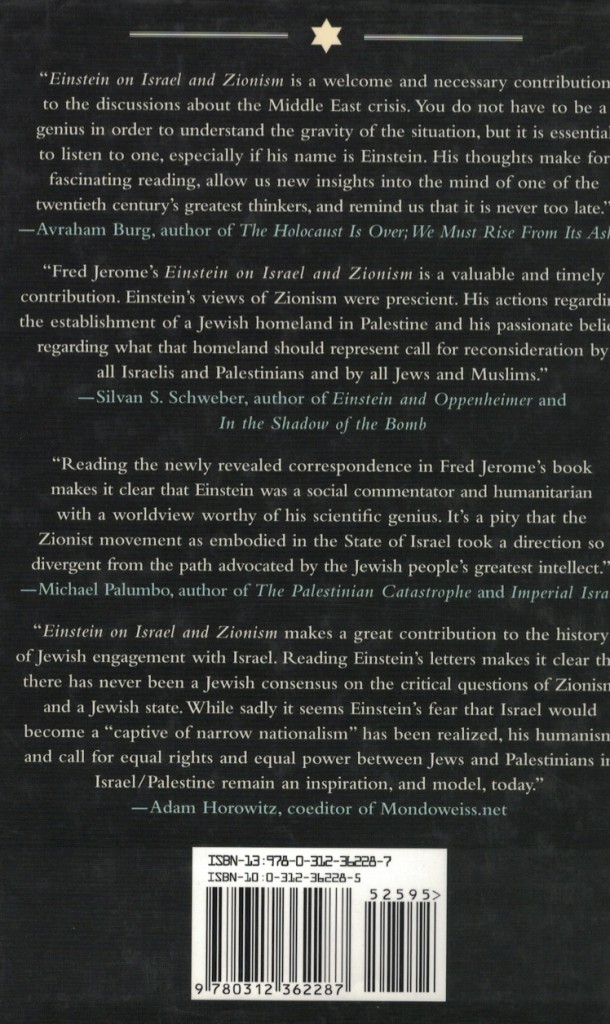
“This volume clearly demonstrates that Einstein, right from the beginning, championed what was in accord with elementary morality: the creation of a “Jewish home” in Palestine would turn into a crime if it resulted in the dispossession of the native population; classical colonialism as practised earlier by the European Nations would turn the Arabs of Palestine into permanent enemies of the colonialist Jewish invaders; an irreconcilable conflict, was still avoidable on the basis of setting up a country in which both Jews and Arabs were accorded the same civil and national rights.”
According to the book’s jacket cover, Einstein’s “nationalism had no room for any kind of aggressiveness or chauvinism. For him, the domination of the Jews over Arabs in Palestine, or the perpetuation of a state of mutual hostility between the two peoples, would mean the failure of Zionism.”
In other words, if the suffering of one people leads to the suffering of another, the result will only be a ceaseless cycle of discord and violence – exactly what is happening today.
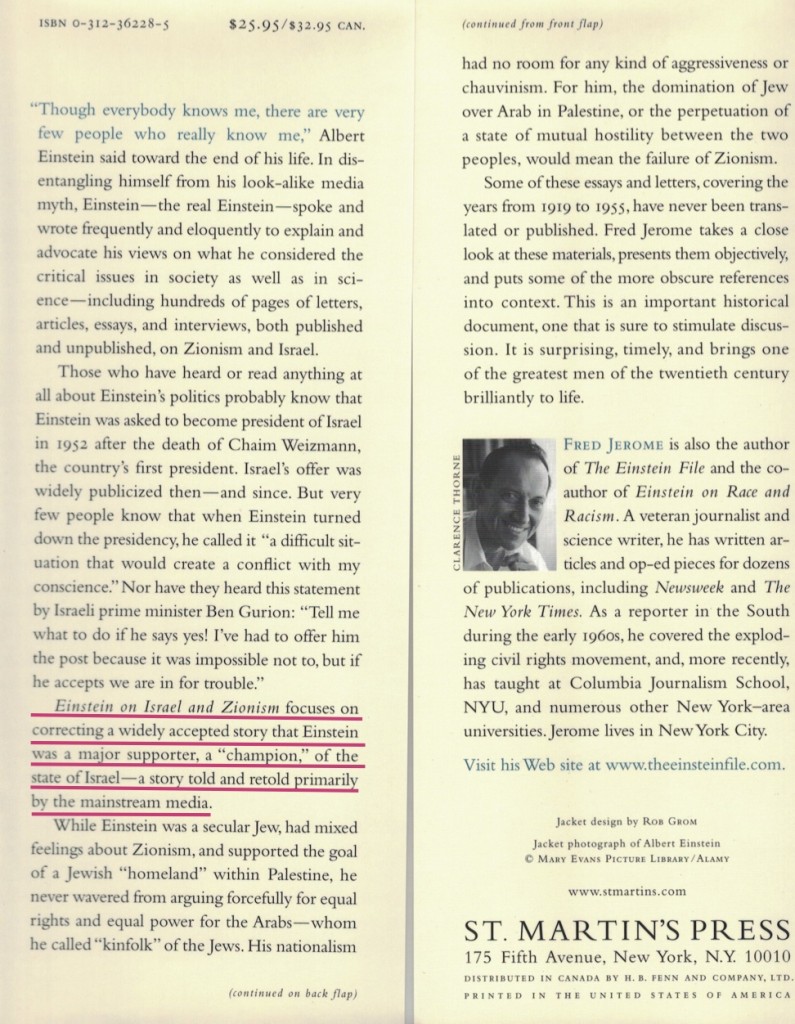
Playing political games today requires complex messages to be boiled down to simple messages – rich vs poor, good vs evil, lies vs truth. The narrative which triumphs is the one which shouts loudest and/or spreads fastest. The Arab-Israeli conflict is spun in those stark David vs Goliath terms, but such books go a long way towards questioning the widely-believed assumptions.
Set against the contextual history of the Arab-Israeli conflict, the book does not shy away from mentioning the funding support for Israel from millionaire Jewish families such as the Rothschilds, the acts of terrorism by Jewish Zionists, such as the assassination of British Minister of State Lord Moyne in Cairo in November 1944, and the blowing up of the King David hotel in Jerusalem by the Stern Gang, led at that time by Menachem Begin, later to become an Israeli Prime Minister.
It also exposes how easy it has become to create enemies where none exist and then play one off against the other on the basis of “shared interests.” The fact that this is still continuing today is an indictment of the global diplomatic, political and geopolitical elites who, in theory, are supposed to be part of the solution but are, wittingly or unwittingly, a part of the problem.
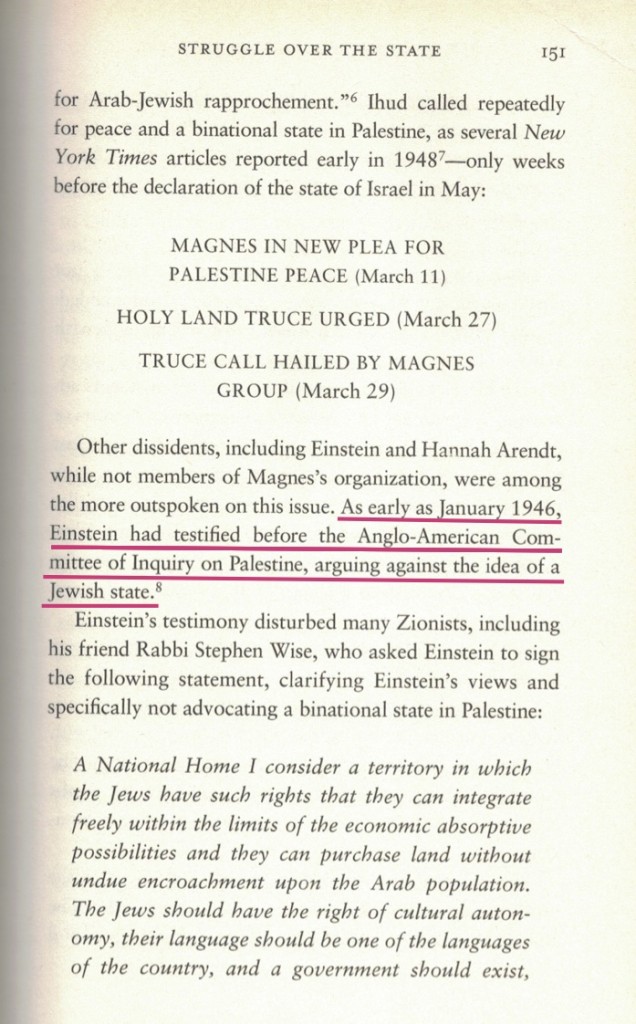 |
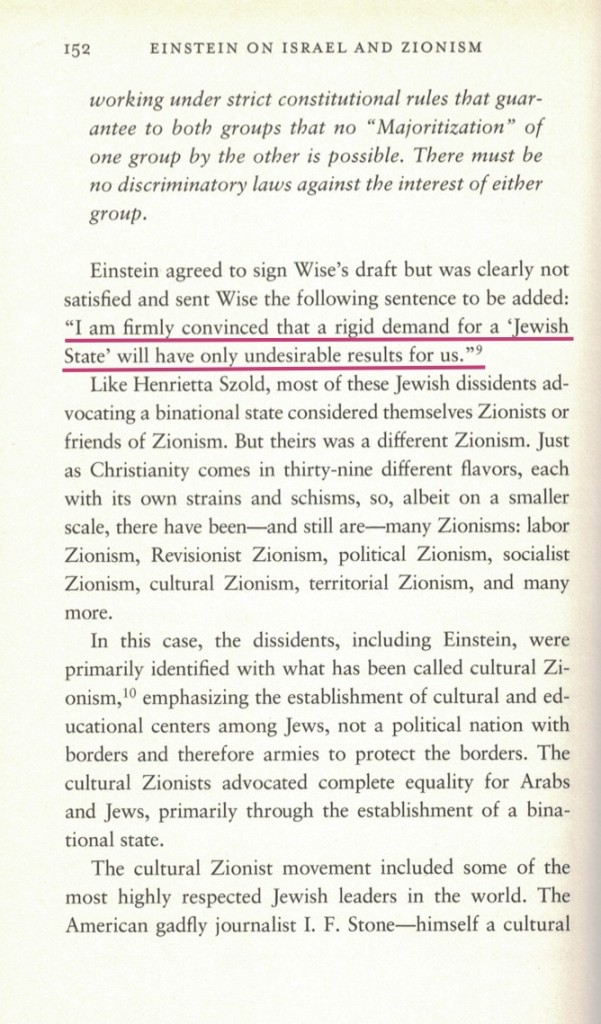 |
One of the most illuminating passages comes from Einstein’s testimony before the Anglo-American committee of enquiry on Palestine in Washington DC on January 11, 1946. He says “I wish to explain why I believe that the difficulties in Palestine exist. First, difficulties between the Jews and Arabs are artificially created, and are created by the English.”
He adds, “It is my impression that Palestine is a kind of small model of India. That is an attempt, with the help of a few officials, to dominate the people of Palestine, and it seems to me that the English rule it. Palestine is absolutely of this kind. It is difficult to imagine how it would be otherwise.”
This quote from a March 25, 1955 letter to Kurt Blumenfeld, referred to as a top Zionist recruiter: “The politics of the Western powers towards the Arabs and Israel really worries me. In addition the methodical deception of our domestic audience by press and radio was and is impossible to overlook.”
In a letter on April 11, 1947, Einstein says, “It seems to me that our beloved Americans are now patterning their foreign policy on the model of the Germans, since they appear to have inherited the latter’s inflatedness and arrogance. Apparently, they also want to take on the role England has played up to now.”
As an Indian, it was interesting for me personally to read an exchange of letters with former Prime Minister Jawaharlal Nehru. Einstein appeals to Nehru, “as the leader of a movement of social and national enfranchisement,” to recognise a similar movement in Zionism.
Nehru replied, “I know that the Jews have done a wonderful piece of work in Palestine and have raised the standards of the people there, but one question troubles me. After all these remarkable achievements why have they failed to gain the goodwill of the Arabs? Why do they want to compel the Arabs to submit against their will to certain demands? That way of approach has been one which does not lead to a settlement, but rather to the continuation of the conflict.”
The most revealing quotes come in a long interview that Einstein gave in December 1952 to the then 32-year-old Egyptian journalist Mohammed Heikal, who would later go on to become the Arab world’s most famous journalist.
Heikal reports, “So, if he is a Jew and yet is uncertain about being a Zionist, how would Einstein feel about being an Israeli? He said that he did not think he could be an Israeli. Although he sympathised with the idea and its lofty aims, he feared that, in reality, the “narrow nationalism,” that he had referred to earlier would lead to a situation of hostility and violence quite at odds with the ideology of a safe and secure homeland.
“When the foundations of any ideology clash with the process of applying it, he said, this clash is in itself must point us to the fact that there is an error somewhere — an error that we must find and try to fix, whether it is in “us” or in “them” or an inherent part of the ideology itself.”
“This is my position,” Einstein is quoted as saying. “Those are my fears!”
Concludes Dr Schiffman, “The book makes a major contribution to solving and healing one the most toxic conflicts of our time. But let there be no illusions; as in Einstein’s own day, the just principles advocated by particularly clear-sighted persons like him will never prevail until the “small,” ordinary people Einstein throughout his life felt so much sympathy with and whom he thought should be in the centre of the historical process will also raise their voices.
“The time, as ever, to do this is now.”



Liked this article? Share it!